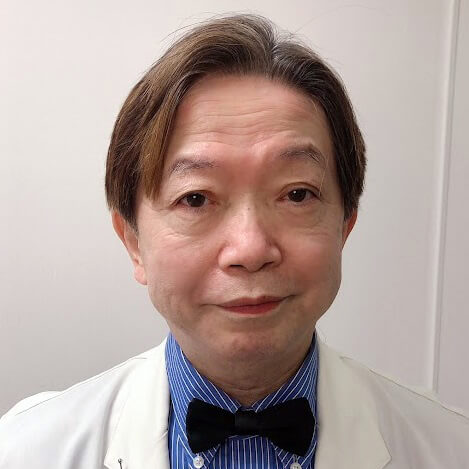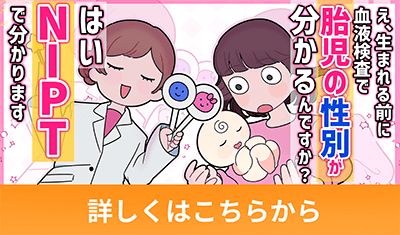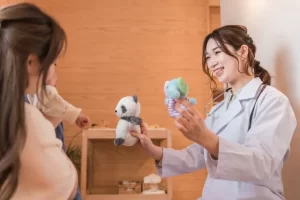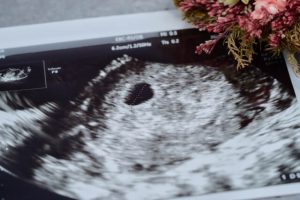Summary of This Article
Individuals with Down syndrome can utilize various support services. Those who hold a developmental disability handbook can receive welfare services based on the Comprehensive Support for Persons with Disabilities Act, as well as services provided by local governments and private entities. There are also allowances such as the Special Child Rearing Allowance and Disability Child Welfare Allowance, and the Pediatric Chronic Specific Disease Medical Expense Assistance System under the medical system. Support services are based on the systems of the national government, prefectures, and municipalities, and the available services vary by region.
Introduction
Down syndrome is the most common chromosomal abnormality. Down syndrome is caused by sudden chromosomal abnormalities, which means it can happen to anyone.
Therefore, many pregnant women might wonder, “If a child with Down syndrome is born, how should I raise them?”
In Japan, various support and services are available to help individuals with Down syndrome live a bright and energetic life.
This page introduces.

What is Down Syndrome?
Down syndrome, formally known as “Down syndrome“, occurs due to a chromosomal mutation. It is also referred to as “trisomy 21” because there is an extra copy of the 21st chromosome.
In many cases, symptoms such as delays in intellectual development are observed, but essentially, individuals with Down syndrome are unique, ‘normal children and normal people’ with no significant differences from us. While some may have associated conditions, there are also children with no related illnesses.
Mechanism of Down Syndrome Onset
Down syndrome occurs due to chromosomal mutations. While this mutation can happen to anyone, a fetus with Down syndrome is more likely to miscarry if the internal environment is not optimal. Therefore, a baby born with Down syndrome has overcome significant challenges, demonstrating a strong vitality.
Down Syndrome Can Be Tested Before Birth with NIPT (Non-Invasive Prenatal Testing)
Down syndrome can be tested before birth through prenatal screening. Traditional amniocentesis and chorionic villus sampling are considered diagnostic tests and can provide a definitive diagnosis, but they carry risks such as miscarriage.
On the other hand, NIPT (Non-Invasive Prenatal Testing) involves testing the mother’s blood, so it carries almost no risk.
What is NIPT (Non-Invasive Prenatal Testing)?
NIPT (Non-Invasive Prenatal Testing) is a test that analyzes DNA fragments circulating in the mother’s blood to check for chromosomal abnormalities in the baby.
Although it is not a diagnostic test, NIPT is highly accurate, with a sensitivity of 99.9% and a specificity of 99.90% for Down syndrome. It can be performed soon after confirming pregnancy through an ultrasound, and it is notable for being able to detect abnormalities earlier than other tests.
Support Organizations for Down Syndrome
※ Information as of February 1, 2022.
Japan Down Syndrome Society, Public Interest Incorporated Foundation
This is a membership organization composed of individuals with Down syndrome, their families, and supporters. There are approximately 5,200 members nationwide.
We engage in various activities related to Down syndrome, with a focus on consultation services and publishing newsletters.
By joining, you can receive and borrow books that provide a thorough understanding of Down syndrome, and you can also participate in various seminars. Additionally, telephone consultations with parents of children with Down syndrome are available, where you can receive advice on matters that can only be understood through personal experience.
NPO Accptions
This organization was established by parents of children with Down syndrome. It conducts various activities aimed at promoting understanding and awareness of Down syndrome among the general public.
We aim to promote the value of diversity in Japanese society and strive for an inclusive society where individuals with Down syndrome, their families, and everyone else can utilize their abilities and respect one another.
We conduct awareness events, training sessions, and study meetings, as well as disseminate information through social media and newsletters.
Non-Profit Organization Down Syndrome Family Support Mebae 21
This is an organization that supports children with Down syndrome and their families. We provide opportunities to expand children’s potential, create connections for families and siblings, and offer various knowledge and new information related to Down syndrome.
In addition to organizing study sessions and events, we also engage in sibling support activities and food education initiatives.
Yokohama Project, General Incorporated Association
We are an organization founded to promote “diversity,” inspired by events that introduce people with Down syndrome.
Our goal is to contribute to creating a society where both people with and without disabilities can acknowledge and empower each other, and to build a resilient society that turns adversity into growth. Based in Yokohama, we are involved in activities such as interaction and exchange projects, information dissemination through booklets, as well as organizing lectures and study sessions.
Social Welfare Council
To support the home life of people with disabilities and the elderly, various welfare services are provided, including home help services (visiting care) and meal delivery services. Additionally, each Social Welfare Council engages in unique projects tailored to the characteristics of their local community to meet diverse welfare needs.
They also collaborate with local volunteers to conduct ‘salon activities,’ where elderly individuals, people with disabilities, and parents with young children can gather and socialize comfortably.

Public Support for Down Syndrome
Individuals with Down syndrome can utilize various support services. These services are based on the systems of the national government, prefectures, and municipalities, and the available services vary by region.
Please note that the availability of services may be affected by the degree of disability and the income of the guardian, so caution is necessary.
Various Handbooks
Developmental Disability Handbook
This is a certificate issued to individuals who have been diagnosed with intellectual disabilities. Those who hold a medical rehabilitation certificate are eligible to receive disability welfare services based on the Comprehensive Support for Persons with Disabilities Act, as well as services provided by local governments and private businesses.
Physical Disability Handbook
This is a certificate issued to individuals with visual, auditory, physical disabilities, or impairments related to the heart, digestive system, or other conditions. It allows access to various services and systems.
Various Allowances
Special Child Rearing Allowance
This is an allowance given to the guardians of children under 20 with intellectual or physical disabilities. The amount varies depending on the degree of disability. Additionally, there are income-based restrictions for the guardians, so caution is required.
Disability Child Welfare Allowance
This allowance is provided to children with severe physical or mental disabilities. Eligibility for the allowance is determined based on the classification of the physical disability certificate or medical rehabilitation certificate, as well as the presence of behavioral issues.
Medical System
Pediatric Chronic Specific Disease Medical Expense Assistance System
This system provides financial assistance to reduce the out-of-pocket costs for medical care incurred by children with chronic pediatric conditions by subsidizing a portion of the medical expenses.
For Down syndrome, subsidies are available only if certain medical conditions are met. The amount of the subsidy varies depending on income.
Educational Support for Down Syndrome
Childcare for Disabled Children
For preschool-aged children, there are services such as ‘Child Development Support,’ and for school-aged children, there are services like ‘After-School Day Services.’ These services are provided not only by public institutions but also by various service providers including private companies and NPOs. They include activities that promote development within settings like nurseries, kindergartens, and after-school programs, as well as group or individual therapeutic training.
Regional Developmental Support Centers
Consultation, diagnosis, and guidance related to the therapeutic education of children with developmental disorders and other disabilities are provided. This is often conducted by professionals such as occupational therapists, physical therapists, speech-language pathologists, clinical psychologists, and clinical developmental psychologists.
Regarding support schools and support classes for children with Down syndrome, please refer to “Education for Children with Down Syndrome (Trisomy 21)” for more information.
Facing Down Syndrome
Down syndrome is the most common chromosomal abnormality, and any mother can potentially have a child with Down syndrome.
As introduced so far, various support organizations and services are available for individuals with Down syndrome.
By knowing in advance, you can prepare for welcoming your baby.
If you have a child with Down syndrome, don’t try to handle everything on your own. Utilize support services and organizations to create a bright and positive environment for your child’s growth.
Conclusion
Due to advances in medical care, it is said that individuals with Down syndrome can now live up to around 60 years. Nowadays, the focus has shifted to how individuals with Down syndrome can lead a fulfilling life.
However, you might feel anxious about whether there are any disabilities in your unborn baby during pregnancy. In such cases, taking a NIPT (Non-Invasive Prenatal Testing) might help alleviate your concerns.
NIPT (Non-Invasive Prenatal Testing) is a blood test, so you can undergo the examination without any risk. If you have concerns, you might consider this option.
【References】
- Japan Down Syndrome Society
- NPO Accptions
- Mebae 21 NPO: Down Syndrome Family Support, Minoh, Osaka
- Yokohama Project
- Social Welfare Council (Shakyo)
- Ministry of Health, Labour and Welfare – About Disability Certificates
- Tokyo Metropolitan Bureau of Social Welfare and Public Health – Overview of the Pediatric Chronic Specific Disease Medical Expense Subsidy System
- Ministry of Health, Labour and Welfare – Living with Trisomy 21 (Community Meeting on Prenatal Testing)
Article Editorial Supervisor

Dr. Masahiko Ito
Former Professor, University of Health and Welfare, Former Dean, Kashiwa Rehabilitation School, University of Medical Innovation, Member, Japanese Society for Gene Therapy and Japanese Society for Gene Research, etc.
Brief History
1974 – Entered the National Defense Medical College
1979 – Externship at the Department of Pediatrics, Faculty of Medicine, University of Sydney, Australia (Royal Alexandria Children’s Hospital)
1980 – Graduated from National Defense Medical College (1st class). Joined the Department of Pediatrics, National Defense Medical College
Worked at the Department of Pediatrics, National Defense Medical College Hospital, Self Defense Forces Central Hospital, Department of Neonatology, Hokkaido General Health Center for Children, and Mishuku Hospital of the National Public Service Mutual Aid Union
1989 – Research Fellow, Harvard Medical School, USA; Clinical Fellow, Tufts University School of Medicine, USA
1993 – Lecturer of Pediatrics, Saitama Medical College Junior College of Saitama Medical School
1994 – Lecturer of Pediatrics, Saitama Medical College
1997 – Associate Professor of Pediatrics, International University of Health and Welfare, Japan, working in the Department of Pediatrics, Sanno Hospital, Japan
2006 – Special Appointment Professor of Pediatrics, International University of Health and Welfare, International University of Health and Welfare (Pediatrics)
2008 – Honorary Director of Ihatove Hospital (Iwate Rosai Hospital)
2009 – Chairman, Hasuda Yotsuba Hospital, Kokoro no Kizuna Medical Corporation
2010 – Chairman, Ginza Cosmetic Surgery Clinic, Ginbikai Medical Corporation
2011 – Director of Shinkawa Hospital, Tsuruyokai Medical Corporation
2011 – Director of Chiba-Kashiwa Rehabilitation School of Medical Sosei University Educational Corporation
2014 – Director, Niigata Chuo Dialysis Clinic, Aoi Kai Medical Corporation
2016 – Deputy Director, Niigata Seiro Hospital, Aoi Kai Medical Corporation
2017 – Director, Higashi Katsushika Hospital, Fukujukai Medical Corporation
2018 – Director of International Department, AOI International Hospital, Aoi Kai Medical Corporation
Certifications
Doctor of Medicine
Registered as a care support specialist (Care Manager)
Board Certification in Allergology, Japanese Society of Allergology
Certified Industrial Physician by the Japan Medical Association
Board Certification in Pediatrics, Japan Pediatric Society
Passed the Japanese Society of Laser Medicine Medical Specialist Examination
Councilor of the Japanese Society of Pediatric Allergy
Councilor, Japanese Society of Pediatric Psychosomatic Medicine
Councilor, Japan-U.S. Medical Exchange Foundation
Councilor, Japan Internet Medical Association
Board member of the Japan Society for Computer Science
Chairman of the Board of Directors, Nightingale Spirit League
Chairman of the Board of Directors, NPO Defense Health Career Net
Advisor to the Medical Department of Kurokane Prison, Ministry of Justice, and other positions or activities
 中文
中文






















